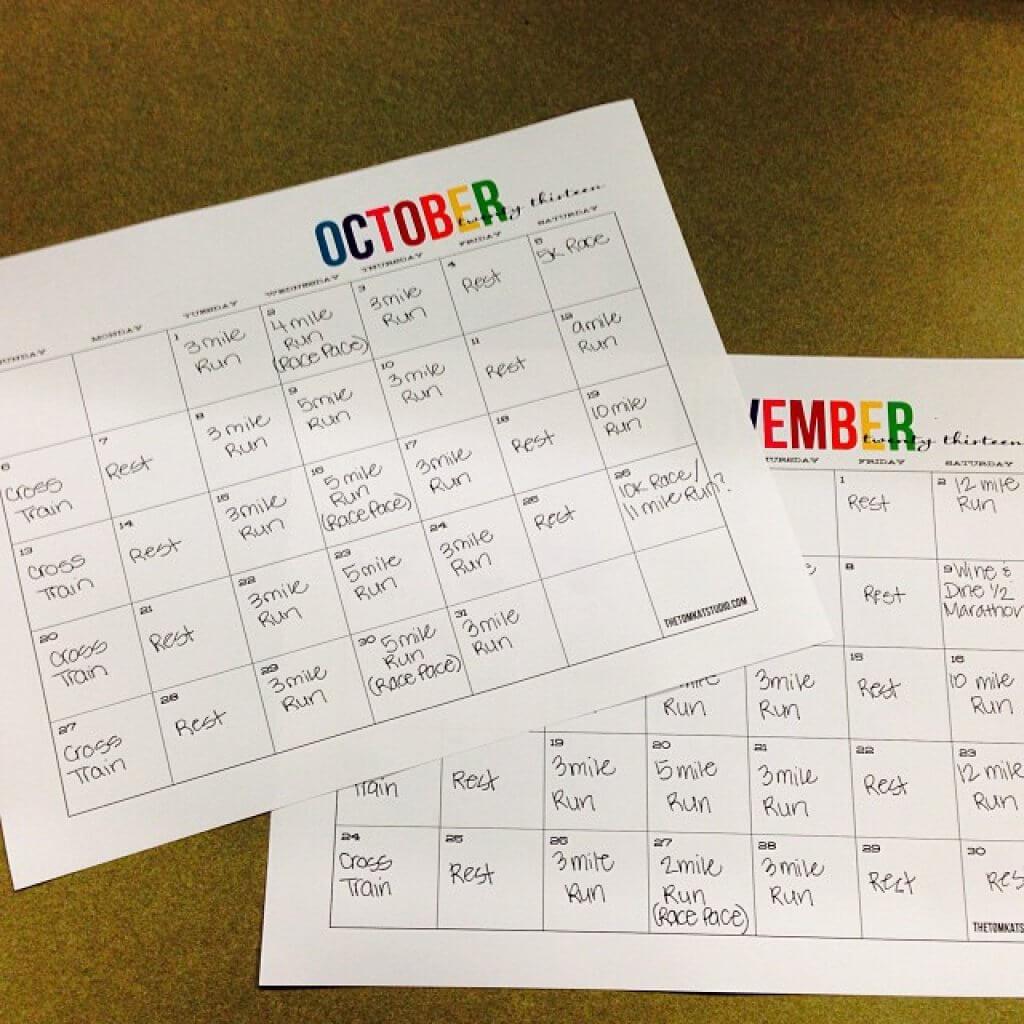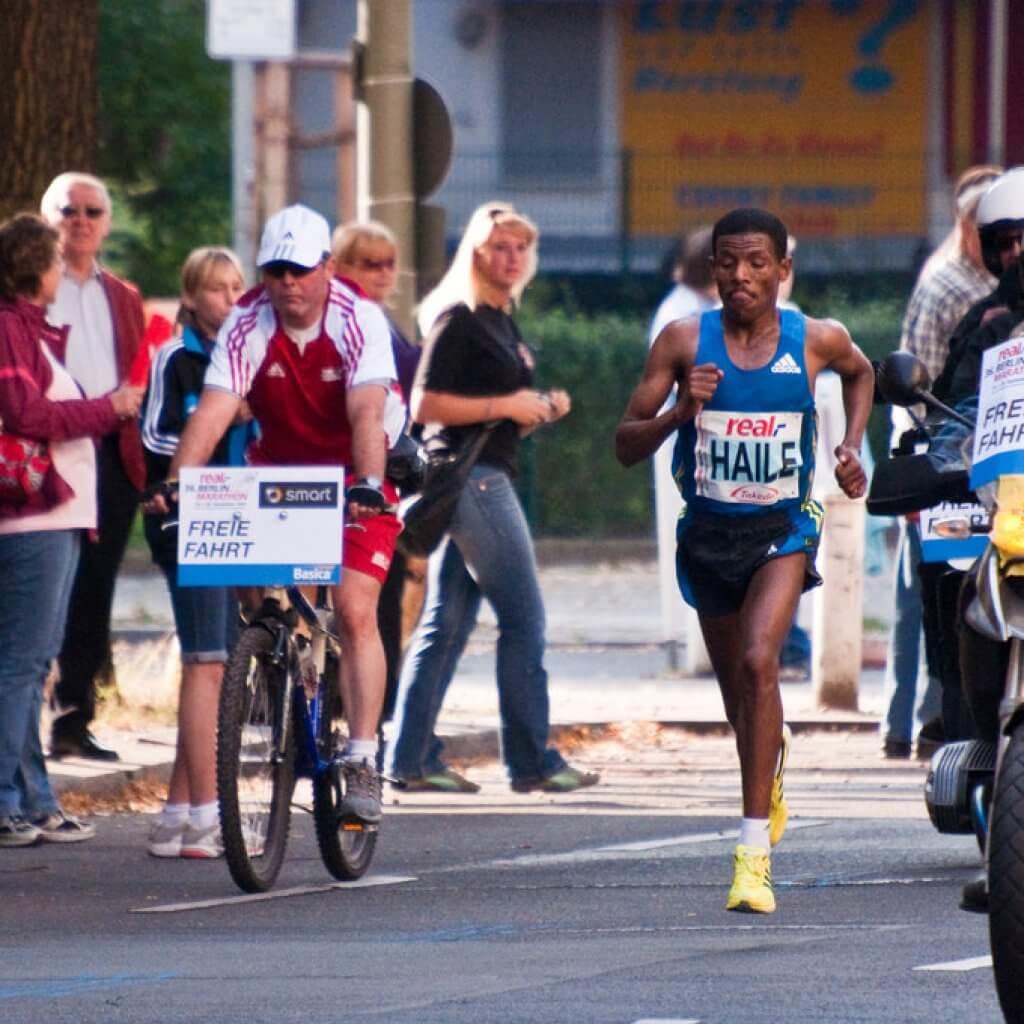Quality vs. Quantity of Training Mileage

“Junk miles” is a term familiar to runners that can be used both positively and negatively. Some athletes swear by sticking to high mileage plans and applaud their “junk mileage” philosophy, while others do the bare minimum and eliminate “junk mileage” and have great race results.
I grew up as a competitive swimmer, and we had a term called “garbage yardage” to describe training plans that involved too much quantity and not enough quality. While my best race last about 23 seconds, we would often spend 4 hours a day in the pool doing training that seemed more designed for distance athletes. The distance trained each day depended on the coach and their philosophy, but often the sprinter group would swim the equivalent of 8 miles per day (and the distance swimmers may cover 12 miles a day!)
Nowadays, most swimming programs have cut that mileage in half and instead have a quality-based approach with more attention to technique and specificity of training to include more speed and power-specific work for sprinters. The quality approach in swimming generally tends to result in less overuse injury rates and better race performance.
But is the same true for running? Can dropping mileage and increasing focus on technique and speed/tempo workouts translate to better race performance with less overuse injury risk? It seems that the answer to that question is… it depends.

Some coaches advocate that running as few miles as possible while still being able (or achieve performance goals) to win is the way to go. Yet many famous elite athletes manage to train 120-160 miles per week without injury. Paula Radcliffe, the women’s world record holder in the marathon at an astounding 2:15 (at the 2003 London marathon) trained about 145 miles on average. Ethiopian distance running legend Haile Gebrselassie reported that he trained 160 miles per week!
So which is best? After reviewing the studies and opinion polls on the matter, I’ve come to the conclusion that running is an art that should be very individualized to your own body and circumstances. (Yeah, the answer that nobody wants to hear!) I’ve come up with some factors to consider when determining which approach you take.
Experience as a Runner
It takes a long time to develop good running technique to the level where it can be carried well through the fatigue of long runs or high intensity/mileage weeks. Diving right into high miles without a lot of experience can get ugly really fast. A person who is just getting into running will probably do better starting with a low to moderate mileage plan for their given race distance, whereas someone who’s been running for decades will be better prepared for a moderate to higher mileage program with less likelihood of injury when it comes to improper form risk.

Specificity to Your Race(s)
Training should always be race-specific. Someone who is training for a Spartan obstacle race should be training differently than someone who is training for a road 10k. Someone who’s training for a trail ultra-marathon in Death Valley should have an entirely different plan than someone who’s training for the Boston Marathon in April. A triathlete will have an entirely different plan than someone training only for running races. You training plan should be super specific to your big goal(s) for the season. It’s important to take a look at:
- The goal length (is the race a 5k, 10k, half marathon, full marathon, or ultra-marathon? Triathlon or obstacle race?)
- The course type (is it hilly? Downhill course? Is it at altitude? Is it mostly on trails or pavement?)
- The anticipated conditions (what will the climate be like?)
- The goal time/pace (how fast do you want to run? Will you need bursts of sprinting, or maintain a steady pace the whole time?)
Once you’ve determined the answer to these questions, you can design a training plan that incorporates “quality” workouts specific to the unique challenges you will face.
Specificity to your Body
Everyone is different physiologically, so it’s important that you above-all listen to your body when training. The best lesson I’ve learned as a runner is to be okay with adapting my training calendar according to how I feel. If I’m really dragging one day, perhaps I do a few miles less than originally planned. If I’m feeling run-down and like I’m about to get sick, maybe I’ll even add an extra rest day or two. And on some days, I’m out there with that runners high and end up doing an extra loop or few extra miles, just because it feels good.
Listening to your body is especially important when it comes to injuries. There’s no perfect answer to how much to push it, but neglecting those warning signs can lead to problems down the road. Allow for adaptation and change over the course of your training program in how your body responds to workouts, what pace you can handle, your custom nutritional approach, and how much recovery you need.

Working Smarter
Most experts agree that mileage requirements increase as race distance increases, but also as your performance goals increase. Be wise in how much mileage you add per week. Most recommend that you can add either 5-10% the distance per week, or one mile per each day that you run per week, as long as you maintain that mileage for two weeks before increasing again.
When it comes to training for distance events that are a half marathon and longer, it’s also recommended to incorporate periodic lower mileage weeks in between high mileage weeks instead of constantly building on the mileage every week, that way you have less injury risk. Some also recommend having slightly less mileage on weeks where you have harder “quality” tempo or speed workouts, to allow for more physiological recovery.
According to Runner’s World Magazine, the average mileage per week is:
For “mortal” runners: 20-25 miles for 5k, 25-30 miles for 10k, 30-40 miles for half marathon, 30-50 miles for marathon
For “elite” runners: 70-80 miles for 5k, 80-100 miles for 10k, 100-110 miles for half marathon, 100-140 miles for marathon

Analysis of Past Races
Another great tip is to use information from past races to help guide you. What was your biggest struggle in the last few races? If you went out too fast and then hit the wall, you can tailor your training to avoid that next time. If you kept a wonderfully consistent pace the whole time but did not reach your goal time, then use that information to re-set your mileage pace for this upcoming session of training.
Relationship to other training
The mileage planning certainly needs to factor in what other types of workouts you may be doing in addition to running. Cross-training may not be at the top of the priority list for many, but it’s super important. Poor hip and core strength are tied to many overuse injuries with runners. When we become too quadriceps, hamstring and calf dominant, we are much more likely to neglect activating the smaller muscles that stabilize our joints and keep everything balance with good shock absorption. Sacrificing a few miles a week in order to get more cross-training may be a rewarding change, if you’re not doing it already.
Is the Joy there?
After all, that’s what it’s all about, right? If you’re not enjoying aspects of your training, it’s time to check-in with your inner self. Has running become a chore? Incorporating quality workouts into distance training can break up the monotony of training and make it more fun. Get creative with your workouts and make sure you are not taking the results too seriously. Stress will have a big negative impact on your running and injury risk, so make sure you’re able to let those “bad” days at the track or on the trail become a distant memory. Some people rely too much on their GPS watches to dictate their satisfaction with a workout. Tempo workouts, sprints and repeats can be a useful tool, but try not to get too bogged down with the numbers, or it may steal your running joy.
Latest Articles
 Is Running on a Treadmill Easier Than Running Outside?Runners have their own preferences, whether it is treadmill running, running outside on the road, or exploring trails. So...
Is Running on a Treadmill Easier Than Running Outside?Runners have their own preferences, whether it is treadmill running, running outside on the road, or exploring trails. So... Is It OK to Use Trail Running Shoes on the Road?While trail running shoes can be used on roads, especially in situations where a runner encounters mixed terrains or pref...
Is It OK to Use Trail Running Shoes on the Road?While trail running shoes can be used on roads, especially in situations where a runner encounters mixed terrains or pref... How to Fix Sore Quads After Running?Rest, ice, gentle stretching, and over-the-counter pain relievers can help soothe sore quads after running. Also, ensure ...
How to Fix Sore Quads After Running?Rest, ice, gentle stretching, and over-the-counter pain relievers can help soothe sore quads after running. Also, ensure ... 10 Fruits With The Most Electrolytes to Replace Sports DrinksThese fruits are high in electrolytes such as potassium, magnesium, and calcium, essential for hydration, muscle function...
10 Fruits With The Most Electrolytes to Replace Sports DrinksThese fruits are high in electrolytes such as potassium, magnesium, and calcium, essential for hydration, muscle function...

